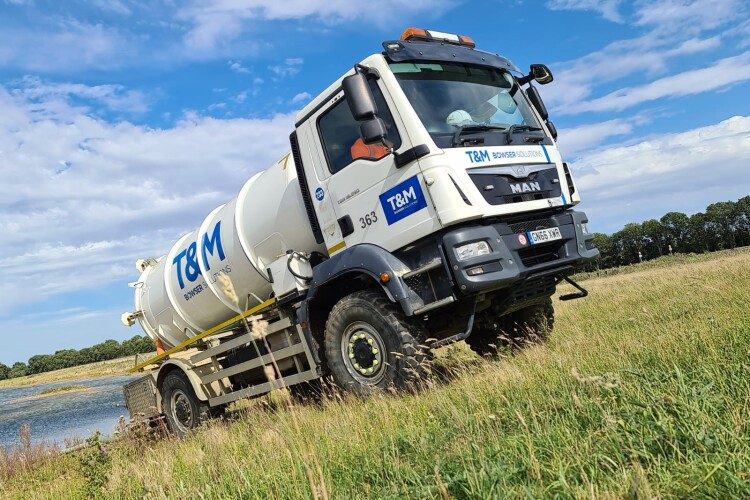The bowers manufacturer is following the lead of one its customers, Skanska.
T&M Bowser Solutions expects to have completed its own transition to HVO within a year.
It comes on the back of a contract to deliver HVO fuel to Skanska construction sites to power plant and machinery.
Skanska is using Green D+ fuel, from Green Biofuels, as a diesel substitute. Skanska will monitor the difference between fuels by using Green Biofuels’ smart tank system that maps and controls energy usage on-site.
T&M managing director Terry Beasley said: “We have been getting approvals from our vehicle manufacturers [to use HVO] while maintaining existing warranties. We have also been talking to other companies that are using it already and there seems to be a consensus that it is not suitable for older vehicles, say, Euro 3, 4 and 5 models. But as 95% of our vehicles are Euro 6, we are in a better position than others to make this switch. Practically, you can run on HVO this week and diesel next week, as long as the vehicle is relatively new, so the barrier to entry is low.”

T&M runs a fleet of 100 vehicles, roughly half of which serve rail projects, including HS2, and half serve other construction sectors, including Skanska’s M42 junction six highway improvement scheme.
It will introduce the fuel across all major sites and vehicles running from head office, meaning approximately 70% of the fleet will instantly move to HVO. A complete switch could happen within a year, Terry Beasley said.
He added: “We are setting up tanks on the larger jobs to allow us to change over within the next six to eight weeks. Our business plan considers that it is a direct replacement for diesel and costs around 15% more. But we also calculate that it is 100% renewable and uses only 10% fossil fuel to create, so the net reduction of CO2 emitted is 90%. All major engine manufacturers support its use and HVO can even have a cleaning effect on engines.
“Again, as a business, we find ourselves among pioneers for change. Very few companies are using HVO at the moment. Industry has been poised for this move for some time but cost and availability have been the biggest inhibiting factors—that’s changing. I expect this evolution to accelerate, leading to a clammer for electric and hydrogen-powered equipment in the future. I know this is also an area that Skanska is watching closely, and we are too.”
Got a story? Email news@theconstructionindex.co.uk



